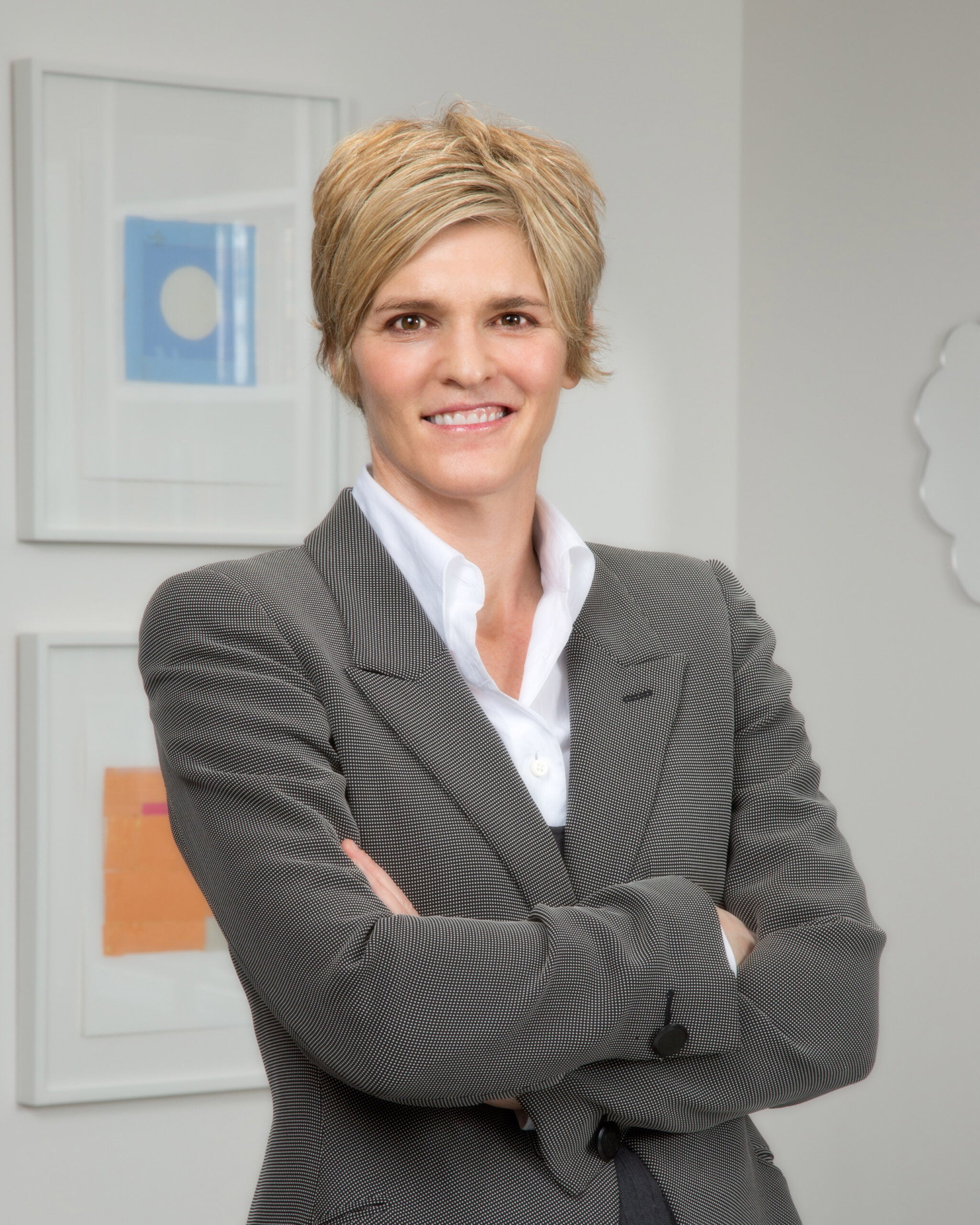“In his State of the Union speech last month, President Obama got one of his biggest laughs when he said that there are twelve different agencies that deal with exports, and at least five that deal with housing policy. Then there is my favorite example: the interior department is in charge of salmon while they’re in fresh water, but the commerce department handles them in saltwater. ‘I hear it gets even more complicated,’ and here he smirked, ‘once they’re smoked.’
“All I could think was, this guy is stealing my chair talk!”
With these words, Archibald Cox Professor of Law Jody Freeman L.L.M. ’91 introduced her lecture “Coordinating Agencies in Shared Regulatory Space,” in which she spoke about the problem of wasteful duplication in government agencies.
“[The President suggested] that if we combine all authority and eliminate a few agencies, and slim things down it would fix things,” Freeman continued. “I hate to say this…but the President is wrong.
“You cannot consolidate your way out of the problem of [wasteful duplication]. The agencies each play a function role and if you want these roles performed, someone or some agency has to do it. The essential challenge of this fragmented regime is coordination.”
The lecture [view video below], which took place on March 7 in the Ames Courtroom, was the first chair lecture given in conjunction with the newly-established Archibald Cox professorship. It was introduced by Dean Martha Minow, who noted that bestowing a chair is the highest honor that Harvard Law School can give to a faculty member and spoke of the exceptional qualities that characterize someone honed with the Archibald Cox chair.
Tenured at Harvard Law School in 1946, Archibald Cox was an expert in labor law, torts, administrative law and constitutional law. He was also involved in a number of landmark Supreme Court cases as solicitor general, and is best known for the five months he served as the Watergate special prosecutor. Upon discovering secret tape recordings of the Oval offices, Cox steadfastly demanded that the White House turn them over. He was ultimately dismissed by President Nixon in what became known as the “Saturday Night Massacre.”
“The name of Cox is synonymous with public service, integrity, and legal acumen,” Minow said. She described Freeman as possessing the very same strength of conviction and devotion to the public good that characterized Cox.
“[Professor Freeman’s] inventive and insightful work places her at the forefront of her two fields: environmental law and administrative law… Her capacity to inspire and lift up the quality of others is renown and about this I give personal testimony,” Minow said of her former student.
Freeman is the founding director of the Harvard Law School Environmental Law and Policy Program. From 2009-10, she served in the White House as Counselor for Energy and Climate Change, contributing to a variety of policy initiatives on renewable energy, energy efficiency, offshore drilling, transmission policy, greenhouse gas regulation and comprehensive energy and climate legislation. She played a key role in the President’s historic national auto agreement, which set the first-ever greenhouse gas standards and strictest-ever fuel efficiency standards for cars and trucks.
On Freeman’s role in the White House, Dean Minow quoted Georgetown Law Professor Richard Lazarus as saying, “Professor Jody Freeman is without question primarily responsible for the President’s single greatest achievement in environmental law.
“Freeman brought together factions that had been bitterly warring for decades — including auto companies, Governors, environmentalists, state and federal transportation officials, state and federal environmental protection officials — and achieved a truly historic agreement on fuel efficiency and greenhouse gas emission standards for new motor vehicles. For one glorious day in the Rose Garden, the impossible became possible. Years of seemingly endless litigation and in-fighting ended.
“No one else had the requisite combination of skills, credibility, and stature to pull of this feat.”
In September 2010, Freeman received a prestigious appointment as a public member of the Administrative Conference of the United States.
This spring, she is teaching the first-ever course on Climate and Energy Law and Policy at HLS, which covers topics in energy and climate studies including advancements in electricity transmission, the economics of nuclear power, and current developments in carbon capture and sequestration technology and law.
The Archibald Cox chair lecture was enabled by the Robert K. Weary Endowment Fund. The fund was established from the unrestricted support of Robert Weary ’48, a Kansas lawyer and business entrepreneur who founded three cable companies, one of which, Communications Services, grew to be the largest cable operator in Kansas.
